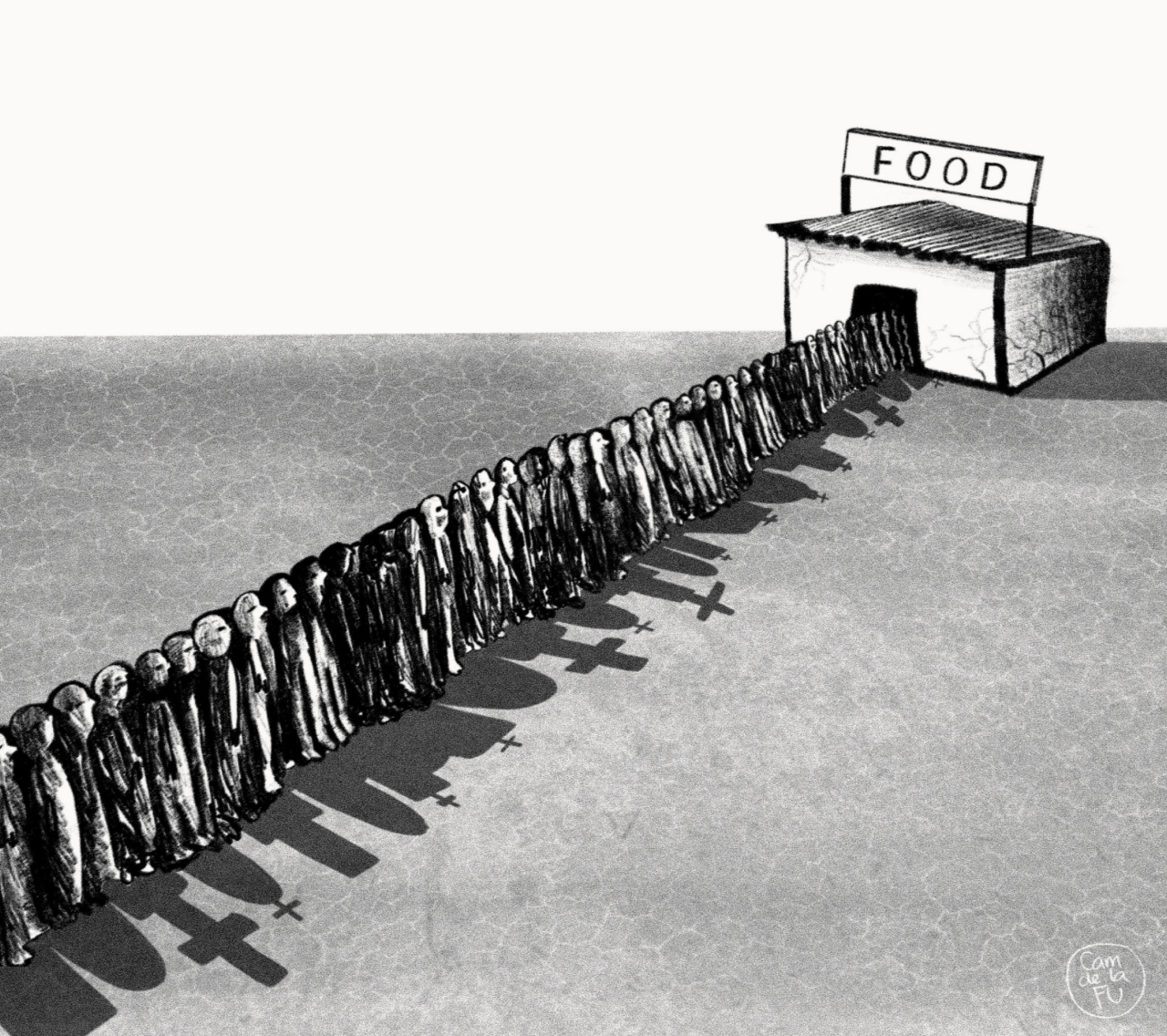Our colleague, Susanne Jaspars, has just published the below essay on a SOAS blog (November 28, 2018), reflecting on a research workshop sponsored by the SOAS Food Studies Centre and Oxford University’s Refugee Studies Centre. We are re-posting an excerpt from it here, as her insights social nutrition and why it matters for studying mass starvation, famine and protracted humanitarian crises are strongly relevant to our work on mass starvation. We encourage you to look at her full essay and the workshop report, accessible though SOAS.
Social nutrition has once again become topical with the threat of famine in Yemen, South Sudan and Syria and the work of the Global Rights Compliance and the World Peace Foundation on accountability for mass starvation.[1] A social nutrition approach could be one way of providing evidence on the causes of mass starvation. One problem, however, is that social nutrition no longer really exists as an approach in emergencies. In September 2017, the SOAS Food Studies Centre and Oxford University’s Refugee Studies Centre organised a workshop on the evolution of humanitarian and development nutrition, with the particular theme of why medicalised rather than social nutrition has come to dominate international nutrition over time. A report on the workshop has just been published.[2]
Within a general trend of medicalisation and individualisation, social nutrition briefly emerged in the the 1930s and the 1980s. It took a holistic and context-specific approach to nutrition by examining its social, political and economic causes, as well as the constraints and obstacles in providing aid to those who need it most. In the 1980s, Pacey and Payne (1985) proposed a social nutrition which recognised that malnutrition had ‘multiple causes, many of which are closely linked to the conditions of inequality of resources, or poverty, and of social discrimination’.[3] It would include new ideas of food systems, livelihoods, and epidemiology. In the following decade, UNICEF proposed a conceptual framework on causes of malnutrition which promoted a similar approach. It went beyond food intake and disease as causes of malnutrition and also included food security, social factors and the health environment, as well as basic causes such as the distribution of resources within society. This was widely adopted in emergency contexts in the 1990s. Yet in the decades since, medicalised nutrition has again come to dominate. These days, policy documents present malnutrition as a decontextualized, biological problem to be solved by the technical administration of nutrients. The main approaches to addressing malnutrition include the provision of specialised food products, new agricultural technologies, and the promotion of behaviour change in feeding and hygiene practices. Social scientists, food policy analysts and human rights movements have criticised these practices because they focus on nutrition status itself rather than addressing its social and political causes, they prevent more flexible and people-centred approaches, and they promote the interests of business rather than the malnourished.[4]
[…]
So, can social nutrition be revived or re-invented to analyse the structural causes of todays protracted crises, famines and mass starvation? This raises big issues of whether the current political and organisational constraints and economic interests in the current medicalised approaches can be overcome and how. Can nutritionists find a way out of their current paradigm of individualisation, medicalisation and de-politicisation? This requires not only a review of the potential role of social nutrition, but also an analysis of who and what is driving the current agenda, and who is already contesting it. Perhaps the current famines and the focus on accountability for mass starvation can be a starting point.
By Dr Susanne Jaspars.
Notes:
[1] https://sites.tufts.edu/wpf/accountability-for-mass-starvation/, and: https://www.globalrightscompliance.com/en/projects/accounting-for-mass-starvation-testing-the-limits-of-the-law
[2] The report of the workshop can be found here: https://www.rsc.ox.ac.uk/publications/contested-evolution-of-nutrition-for-humanitarian-and-development-ends
[3] Pacey, A. and Payne, P. (1985) Agricultural Development and Nutrition, London: Hutchinson and Co by arrangement with the FAO and UNICEF.
[4] See also: Jaspars, S. (2018) Food Aid in Sudan. A History of Power, Politics and Profit, London: Zed Books.



